“You start with the mother” says Nick Pihakis of Jim N’ Nicks BBQ. Based near Birmingham, this 28 location purveyor of made from scratch Q and sides is all about doing things “the way they ought to be done”. For Nick this begins in the pig lot. I was lucky to hang out and serve cider at the Fatback Collective tent during the Memphis in May BBQ Competition where Nick inspired and educated me. The Jim N’ Nicks way in the kitchen is all about doing things with “a passion for detail, honest effort and a refusal to take short cuts”. But what’s unique about this group of talented individuals, is that Nick and his team take their values and skills all the way to the farm.
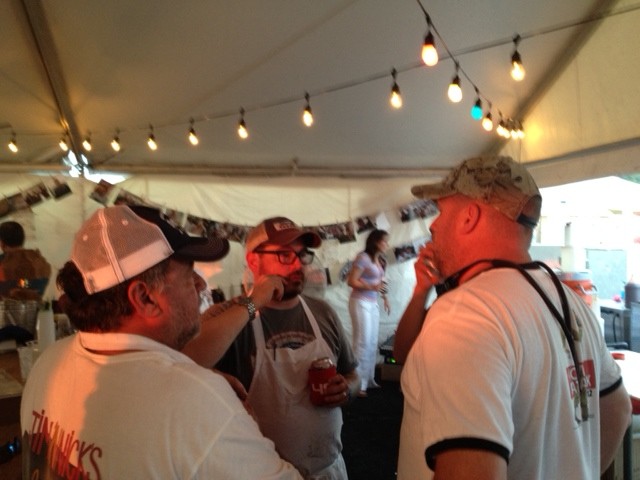
Nick Pihakis, Sean Brock and Fatback Collective Chefs Confer
These days, what chef doesn’t tout “locally sourced”? Are there any meat-centric restaurants that don’t say “snout to tail”? But for Nick Pihakis, “end to end eating” means from animal DNA lines to processing plants. Nick cultivates small AL pig farmers to grow Mangalitsa pigs, selected for their sweet temperament, fine mothering skills, thick layer of fat and fantastic flavor. He worked with the AL state government to open a processing plant for the over 15,000 pigs his restaurants need. He sources good quality pig feed for his growers and is developing a market for the pig parts his restaurants don’t need—Whole Foods will purchase the tenderloins for example. When Nick says, “I want farmers to be proud of what they are doing and happy to work with us” I know I’ve found a chef whose values match his words.
When McDonalds serves an Artisan Pretzel and Handmade Smoothie, words like “artisan” and “handmade” lose their meaning. If we really care about where our food and beverages come from—who grows, raises, processes, cooks and serves them—then we really need to start a conversation.
Executive Chef Rob McDaniel is even more explicit—To eat good food “you have to have a conversation—you can’t have a conversation at Wal Mart or Costo about where your food comes from. To really know what you are feeding your family and how that food was grown or raised, you have to talk to your farmer.” His Spring House restaurant in Lake Martin, AL, sources local food in a meaningful way (not to mention serving up deliciousness on every plate). But even more interesting, Rob has organized the Front Porch Revival, an association devoted to promoting small Alabama food growers and makers, often through events that provide an opportunity for substantive conversations.”We want this generation of artisan producers, both in agriculture and in the arts, to stay in Alabama and not move away.” This noble—and practical—sentiment goes down well with a Spring House Springer Mountain Chicken and some grilled Vidalia onions.
I recently had one of those full-hearted conversations with Will Harris, President of White Oak Pastures and a 4th generation cattleman. In the last 15 years Will has transformed the farm his great-grandfather settled in 1866 by taking it back to the way his ancestor farmed. White Oak Pastures is a recognized leader in sustainable agriculture—and the long conversation shows this means much more than a slogan. Will and his family have a long term commitment to creating a diverse farm of grass fed animals, free of hormone and antibiotics, chemical fertilizers with an on-farm abattoir. Hear more conversation from Will in this video from his farm in southwest Georgia.
Even a short conversation with Craig Rogers of Border Springs Farm never fails to broaden my understanding of what ends up on my plate and in my glass. Craig is my “animal mentor” and he never fails to cut to the meat (couldn’t resist!) of the issue—”Local is not good enough. Why buy a local tomato that tastes the same as one you get at Wendy’s? The key to ‘local’ is that is tastes better. If the grass fed local meat you buy isn’t the best tasting meat you’ve ever had, then it’s not worth buying. Just because you are ‘local’ doesn’t mean you get to make excuses about flavor.”
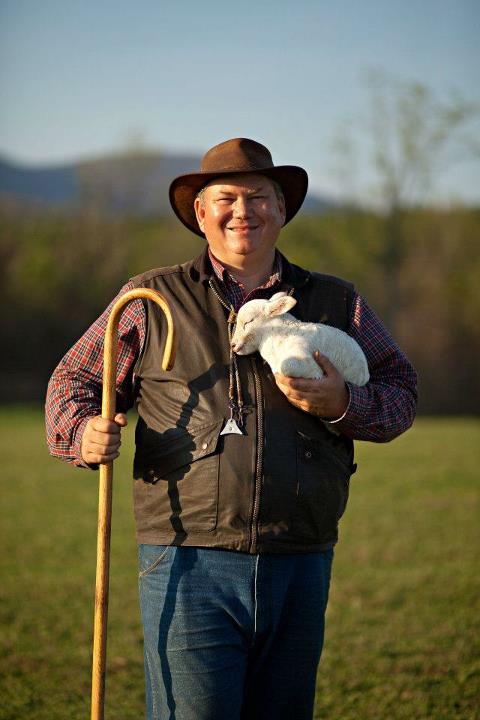
Craig Rogers at Border Springs Farm
I agree and extend this sentiment from the pasture to the tree. Steve Wood of Farnum Hill Cider has led the growth of the artisan cider movement in the US by staying true to his mission of “growing real cider apples”. The fine Bittersweet apples Steve grows in northern New Hampshire don’t always flourish in the Southern Appalachians at Foggy Ridge Cider, but Steve speaks eloquently about the importance of both flavor and place in this excellent video from the Farnum Hill orchards…listen to Steve’s conversation about real apples, cider and taste. Over 14 years ago Steve inspired me to experiment with real cider apples at Foggy Ridge and I’m happy to say I’ve found a selection of mostly American heirlooms that grow well and contribute complex flavors to hard cider.
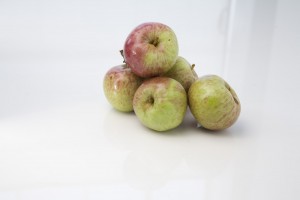
Dabinett Apples Grown by Farnum Hill & Foggy Ridge
In early spring, before our garden comes in, I troll farm stands hoping for the first peas and something other than kale. Seeking conversation, I always ask “Where did this come from?” Early in the season I often hear “Oh, that’s from South Carolina” or “We brought that in from the coast.” Last month in Laurel Fork, VA, just around the corner from Foggy Ridge, I asked the farmer “Where did these peas come from?” He looked at me like I was crazy, and answered, “Up at the house.” I ate the fresh sweet Sugar Snaps raw, right on the side of Hwy 58, and smiled.
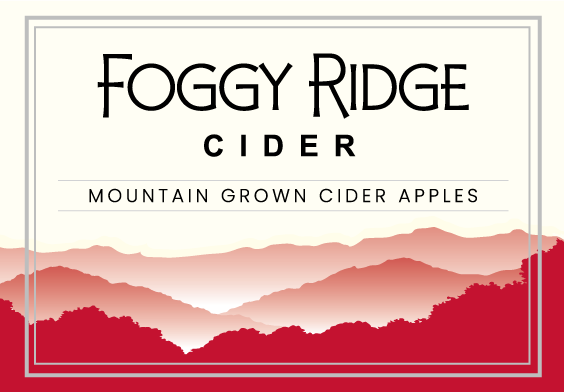

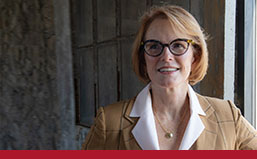
Leave a Reply